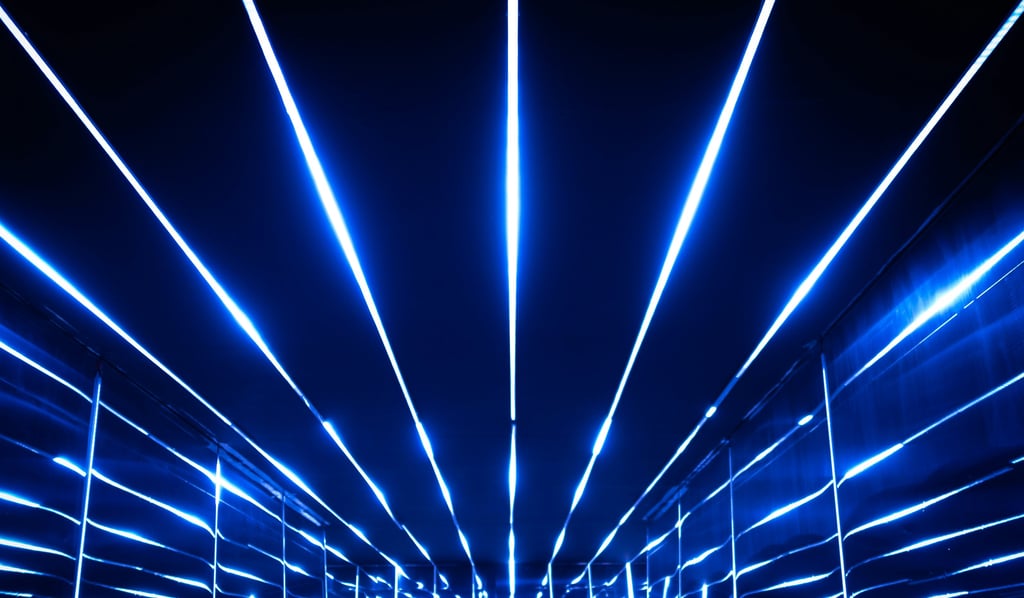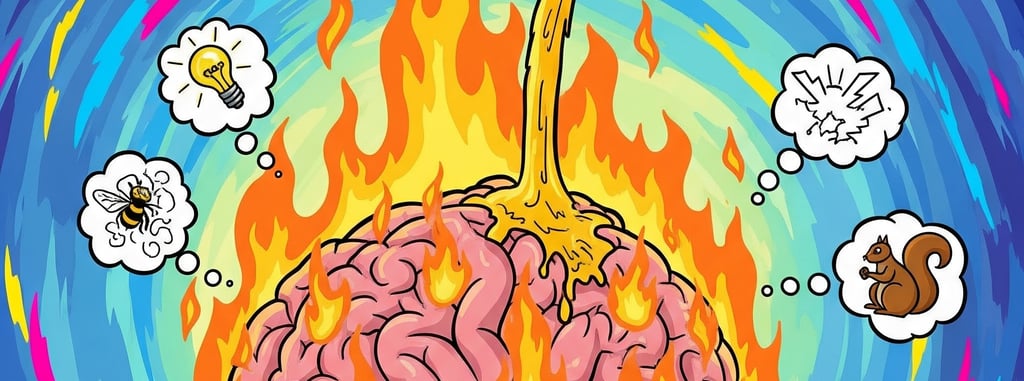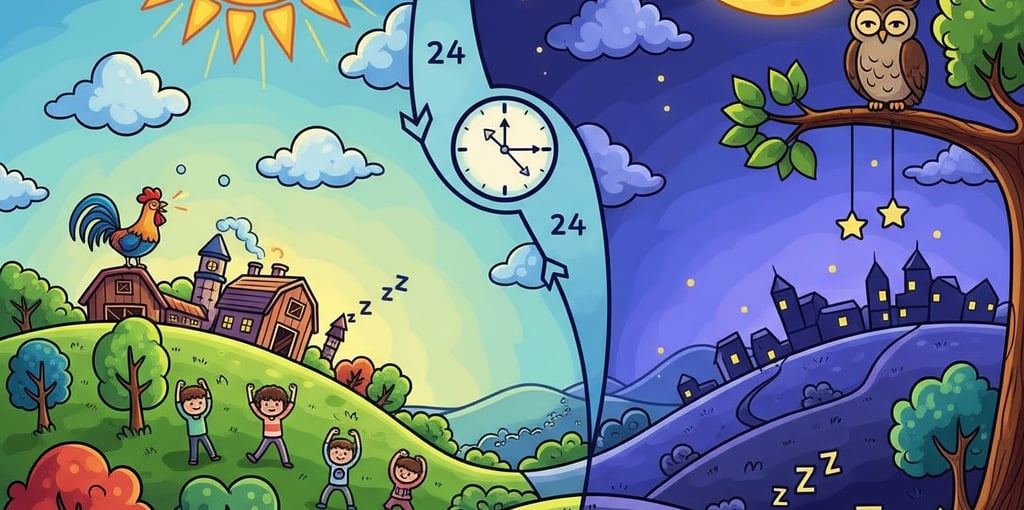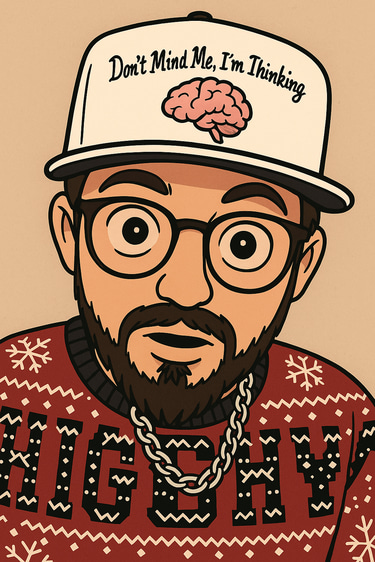Screens Are Wrecking Your Sleep—Here’s What ADHD Brains Can Do About It
Struggling to fall asleep with ADHD? You’re not alone—and your screen may be to blame. In this eye-opening post, we break down how nighttime screen time disrupts your sleep, overstimulates your ADHD brain, and fuels brain fog, anxiety, and burnout. Discover the science behind blue light, overstimulation, and ADHD—and walk away with simple, screen-free bedtime swaps that actually work. If you’re tired of feeling wired and exhausted, this scroll-stopping guide could change everything.
Ron Souers
8/6/20254 min read


This one habit rewired my ADHD brain more than any planner ever did—and it’s stupid simple.
For those of us with ADHD, overstimulation and poor sleep can feel like a never-ending war where we never quite know what side we’re fighting for. While looking at YouTube on your phone or watching TV might seem like a harmless escape, it could be keeping your brain from doing the one thing it needs most—resting. I’ve been testing this in my own life, and the impact has been wild.
Once I started cutting back on late-night scrolling and binge-watching, I began falling asleep faster and waking up feeling noticeably more refreshed.
I’ll walk you through the real benefits of cutting back on screens before bed—especially for ADHD minds—including better sleep quality, less overstimulation, improved focus, and healthier nighttime habits.
Let’s start with where the magic happens: your sleep.
Power Down to Power Up:
Why Ditching Screens at Night Supercharges Your Sleep
Your brain finds it harder to relax the more time you spend staring at your screen.
Now, screens emit blue light, which suppresses melatonin production—the hormone that signals your body it’s time to rest. For me, that meant lying awake for hours or waking up at 3 a.m. for no reason. Dr. Charles Czeisler of the Harvard Medical School showed that evening screen time delays sleep onset and disrupts our circadian rhythm.
Your circadian rhythm is your brain’s internal clock—it tells your body when to wake up, wind down, and sleep. It runs on a roughly 24-hour cycle, syncing up with light and darkness. When the sun goes down, your brain starts pumping out melatonin (your natural “time to chill” hormone), helping you relax and get sleepy.
But when you scroll TikTok at 11 PM with your screen two inches from your face? That blue light tricks your brain into thinking it’s still daytime, which delays melatonin and messes with your rhythm. That’s why you can feel tired and weird at the same time.
But it’s not just sleep—it’s how much calmer your mind feels when you reduce that digital overload.
Screens Pour Fuel on an Already Blazing ADHD Brain
If you’ve got ADHD, your brain’s already running hot—screens just throw gasoline on the fire.
Watching intense shows or doom-scrolling social media late at night keeps your brain stimulated long after you’ve put the phone down. That translates to racing thoughts, restlessness, and more of that “wired and tired” feeling. For me, shows like Deadpool & Wolverine were like dopamine crack—impossible to turn off or look away! Gradually reducing my screen time helped me quiet my thoughts and lowered my emotional reactivity the next day. Cleveland Clinic even links digital overstimulation to increased cortisol and poor sleep.
Once you calm the chaos, your executive functioning starts to come back online.
Sleep: The ADHD Brain Hack You’re Probably Ignoring
You can’t expect your ADHD brain to focus when it’s running on fumes.
Quality sleep helps with memory consolidation, emotional regulation, and focus—all things ADHD makes harder. Since cutting down screen time before bed, I’ve noticed I’m less foggy, more present, and (bonus!) I remember to pack my lunch. Studies from the Sleep Foundation link REM sleep with improved executive function, and screen use before bed interferes with that. When I give my brain a real break, I show up better—period.
Okay, so screens clearly mess with our heads… but what do we do instead?
Creating Screen-Free Habits That Actually Work
You don’t have to become a monk—just start small and stay curious.
I get it—screens are a comfort, a distraction, and entertaining. Nobody expects you to get this right every night (we tend to forget), but slowly replacing that time with journaling, reading, or stretching can make a huge difference in your sleep and mood. Here are a few practical tips I’ve used:
⏰ Set a screen curfew (start with just 15 minutes before bed)
🧘 Replace scrolling with meditation, journaling, or music
📵 Use blue light filters or glasses if you absolutely need a screen
🎯 Set an intention: “I'm doing this now, so I don’t regret it tomorrow.”
And look—I’m far from perfect at this, but the wins are adding up.
You don’t need to be perfect—you just need to start with intention.
Pick one night this week to go screen-free before bed. Let rest be your quiet rebellion against burnout. Let your phone become a tool again, not a trap.
You deserve calm. You deserve clarity. You deserve sleep that restores you.
Try it. Notice the difference in the morning. And if you’re up for it, share your screen-free bedtime routine on TikTok and tag me @YourADHDGuy. Let’s kick off a scroll-free sleep revolution—one night at a time. #ADHDSleepShift
This article hit home? There’s more where that came from. Listen to “Don’t Mind Me, I Just Have ADHD!”—the podcast made for folks who forget what they just read (but still want to grow).
👉 Want to dig deeper? Don’t miss this powerful article on how screen time impacts childhood development—it’s a must-read for anyone who cares about kids and mental health.




Support
A guide for neurodivergent workplace challenges.
Resources
Community
RonSouers@dadhdwss.com
© 2025. All rights reserved.
